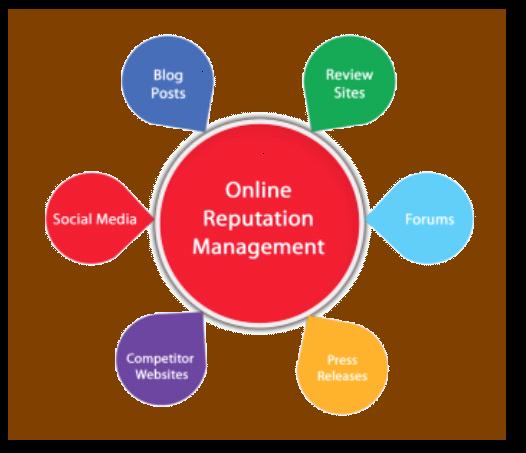Most people think online reputation management (ORM) involves just reacting to feedback or monitoring mentions. The necessity of a digital presence these days makes intentional strategies that help shape your brand’s public image a must for a stellar online reputation. This article will detail some distinct ORM approaches that’ll give your business the power to go beyond the basics, so you can cultivate and sustain a powerful online brand presence.
Build an “Advocate Community” Program for Your Brand
Creating a network of loyal brand advocates can give your online reputation a huge boost. This community might include satisfied customers, enthusiastic employees, or even influencers who support your brand’s mission. By actively cultivating an advocate community, you gain a reliable group of supporters that give your brand image a lot of credibility.
Start with a structured onboarding process that invites dedicated supporters into an exclusive group, where they gain perks like early product access, discounts, or insider updates. Once your advocates are onboard, encourage them to share their authentic brand experiences across social media channels. This organic advocacy shows a positive image to new audiences.
Enhance the experience with gamification. Offer rewards for positive actions like referrals, testimonials, or social media posts. Featuring standout advocates on your website or social channels can also make your brand more credible and demonstrate your brand’s positive real-world impact, strengthening customer loyalty and trust.
Using Visual Search and SEO to Strengthen Brand Image
You can shape how audiences see your brand by leveraging visual search and image-based SEO techniques. By optimizing visuals, you gain more control over how your brand appears in image search results, enhancing its presence.
Start by using branded search terms in image descriptions, alt tags, and file names. This improves the chances of search engines displaying your curated visuals for relevant queries. Submitting images to visual platforms like Pinterest, Instagram, and even stock photo sites like Unsplash can further expand your reach. These channels help populate image search results with positive visuals, improving your brand’s online perception.
Applying schema markup for images is another effective step. Schema increases visibility in search engine results and gives your brand a cohesive, professional presence in visual searches.
Advanced Reputation Intelligence Tools
Traditional monitoring tools are valuable, but the more advanced reputation intelligence platforms like Brandwatch, Meltwater, and NetBase Quid offer deeper analytics and insights. These tools make it easier to gauge how people perceive your brand, giving you data you need to refine your ORM strategy.
You can also analyze competitors with reputation intelligence tools, identifying patterns in audience sentiment and seeing which strategies are working well. These insights give you an advantage in helping your brand stand out. The predictive analysis in these tools also helps detect emerging risks, letting you nip issues in the bud before they escalate.
Use these insights to perform sentiment analysis on your own content. By focusing on what works, you’ll create positive messaging that strengthens public perception and establishes your brand as a trusted authority.
Digital Reputation Insurance for Your Brand
Digital reputation insurance can play a big part in protecting your brand’s online image. Reputation insurance companies, like AIG or Allianz, specialize in crisis management, giving their clients resources to handle unexpected challenges that could impact their brands.
Select a plan that suits your company’s needs. Most plans offer immediate access to resources like legal counsel, crisis PR, and online reputation recovery tools—all tools you’ll need during a brand crisis.
Work with your insurance provider to put together a crisis playbook that includes ready-to-use messaging templates and identifies key response leaders within your organization. If a crisis happens, reputation insurance specialists manage media relations, social media responses, and search engine visibility. This support keeps reputational damage in check, providing peace of mind and protection against reputation risks.
Build Customer Trust with a Reputation-Based Loyalty Program
Turning your loyalty program into a reputation-boosting tool adds a valuable layer to your customer engagement strategy. By rewarding customers who actively support your brand’s image, you foster loyalty and create positive associations that go past just purchases.
Offer points or rewards to customers who leave reviews, refer friends, or share their experiences on social media. This system generates user-generated content that boosts brand visibility and establishes credibility.
To take it further, recognize and reward VIP loyalty members who contribute to your brand image. Featuring VIPs on your website, social media, or in newsletters fosters a sense of community around your brand. This approach strengthens your brand reputation and makes customers more loyal.
Host Webinars and Q&A Panels to Build Thought Leadership
Hosting webinars or live Q&A sessions shows your band as an authority in its field, which helps build trust with current and potential customers. To establish yourself as an authority in the industry, create content that addresses pressing trends, challenges, or questions in your field.
Collaborating with industry experts as co-hosts can increase your event’s reach and bolster credibility. Partnering with respected voices shows that other leaders recognize your expertise, elevating your online reputation.
Engage your audience directly with live polls, Q&A segments, or discussion forums. Real-time interaction demonstrates your brand’s accessibility and commitment to transparency, reinforcing your reputation as a reliable source of industry knowledge.
Building Transparency with a Public Code of Ethics
Establishing a code of ethics and making it public can significantly enhance your brand’s reputation, demonstrating a commitment to values like sustainability, customer respect, and ethical business practices. A well-defined, accessible code gives the audience a glimpse of what your company stands for, building trust and accountability.
Craft a detailed document covering your key policies, then make it accessible on your website. This transparency invites customers and stakeholders to see your company’s dedication to responsible practices. Sharing periodic updates on your social responsibility initiatives—such as environmental projects, donations, or volunteer work—reinforces your brand’s commitment to making a positive impact.
Encourage customer and employee feedback on your ethical practices. An open-door policy that welcomes suggestions reflects a dedication to improvement and reinforces customer trust, building a more resilient brand reputation over time.
Making the Most Of Your Reputation Management Strategies
Reputation management has gone even further beyond passive responses to customer reviews or mentions; it now involves using strategies that create brand credibility that lasts. Using forward-thinking approaches like building an advocate community, enhancing image SEO, using reputation intelligence tools, and considering digital reputation insurance allows your brand to stand out in a crowded marketplace.
With these ORM strategies, you’ll gain greater control over your brand’s public perception, helping you build a strong, positive reputation that endures.





